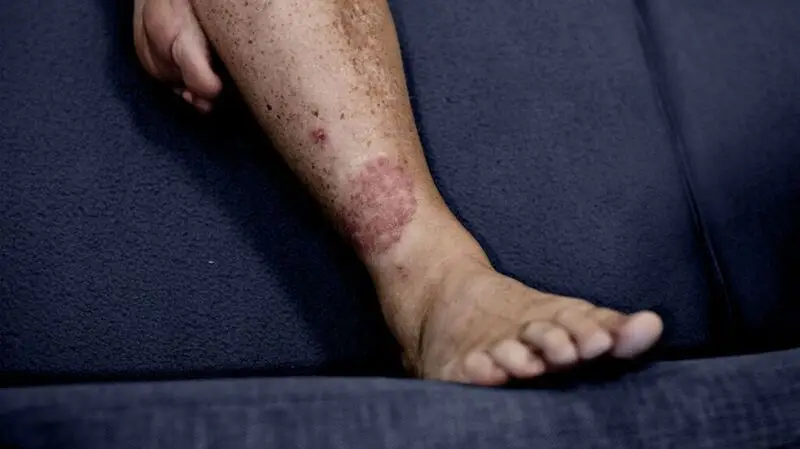
- Scientists are still unraveling the underlying mechanisms involved in psoriasis.
- Somatic mutations play a role in the development of cancer.
- A group of researchers recently investigated their role in psoriasis.
- They concluded that psoriasis is not caused by somatic mutations in skin cells.
Psoriasis is one of the most common skin conditions in the United States. Mediated by the immune system, it causes red, itchy plaques to form on the skin.
It is estimated to affect more than
Despite this prevalence and its significant impact on quality of life, many mysteries still surround the condition.
This is partly due to significant gaps in our knowledge regarding the cellular mechanisms that underpin it.
On the hunt for answers, researchers in a recent
These types of mutations, which are a normal part of aging, are due to errors during DNA repair, environmental factors, or stress.
Once a somatic mutation occurs, the cell continues to grow and divide as normal, creating a lineage of mutated cells. Sometimes, these mutations provide a competitive advantage. These so-called driver mutations help the cells colonize tissue, replacing Healthy cells over time.
As these cells grow in number, they have the potential to influence disease risk and progression as well as how an individual responds to treatment.
Because mutations in oncogenes or DNA repair mechanisms can help cancer cells proliferate, cancer researchers have studied these mutations in detail.
In more recent years, thanks to the advent of new technology, scientists have started investigating somatic mutations in non-cancerous cells, including cells from the
Some believe that somatic mutations might play a role in the pathogenesis of diseases other than cancer. Scientists are focusing on how environmental changes might drive these mutations.
For instance, studies show that treatment with azathioprine — a common drug to treat immune-related conditions — produces mutational signatures in
The authors of this recent study also note that somatic mutations may play a causal role in
Now, a research group led by scientists from the Wellcome Sanger Institute in England turned their attention to the potential influence of somatic mutations in psoriasis.
To investigate whether somatic mutations might be important, the researchers recruited 111 participants with psoriasis with ages from 18 to 88.
From these people, they took 1,182 punch biopsies. Next, they compared whole genome sequences of cells in psoriatic lesions with cells from nearby patches of healthy skin.
The most common mutations they identified were related to ultraviolet (UV) exposure. These were present even in participants who had not received phototherapy — a common intervention for people with psoriasis.
The second most common mutation was related to the use of psoralens, a drug that helps skin become more light sensitive before UV-A treatment. However, they also identified these mutations in people who had not used psoralens.
The study authors suggest that this might be because, prior to 1996, manufacturers added psorlanens to some sunscreens. Mutations caused by these creams may have persisted since then.
They said they found no other mutations related to other treatments, such as topical steroids. Similarly, they found no evidence that somatic mutations cause psoriasis.
They also reported that psoriasis doesn’t interfere with the way in which skin cells develop from stem cells.
While the scientists did not uncover any links between somatic mutations in skin cells and psoriasis, they say their study still adds value.
“Psoriasis is a condition that affects millions of people around the world, impacting their quality of life, and very little is known about why it happens and how we can treat it,” explained Carl Anderson, PhD, a senior group leader at the Wellcome Sanger Institute and a senior study author, in a statement.
“While our research did not find a gene where somatic mutations increase susceptibility to psoriasis,” Anderson said, “we were able to quantify the mutational consequences of psoralens exposure on the skin, defining a mutational signature that may help future research.”
The authors also note that while somatic mutations in skin do not appear to play a significant role in psoriasis, they are not entirely off the hook.
Because psoriasis is immune-mediated, there is a chance that somatic mutations in immune cells may be important. This, the authors explain, “is an important direction of future work.”
Psoriasis still holds many mysteries.
Medical News Today spoke with Dr. Joel Gelfand, a professor of dermatology and epidemiology at the University of Pennsylvania Perelman School of Medicine who was not involved in the study.
We asked why the condition is so difficult to study and how scientists need to approach the problem. “Psoriasis is a lifelong disease that persists for decades, yet clinical trials are short term, typically in weeks or months,” Gelfand explained.
“To further advance the science and clinical management of psoriasis, the next generation of trials will need to have a pragmatic, randomized design, active comparators, larger sample sizes, and longer durations,” he added.
Medical News Today also contacted Axel Svedbom, PhD, a researcher at the Karolinska Institutet in Sweden who was not involved in the study to ask about the challenges of psoriasis research.
Among other reasons, he said, “The disease appears to be multifactorial and it is possible that risk factors — for example, genetic and environmental — act synergistically. Therefore, you may need more advanced analytical techniques to uncover these relationships.”
So, while somatic mutations in skin cells do not seem to play a major part in psoriasis, using innovative techniques and testing new approaches is vital to help us design better treatments for this common condition.





